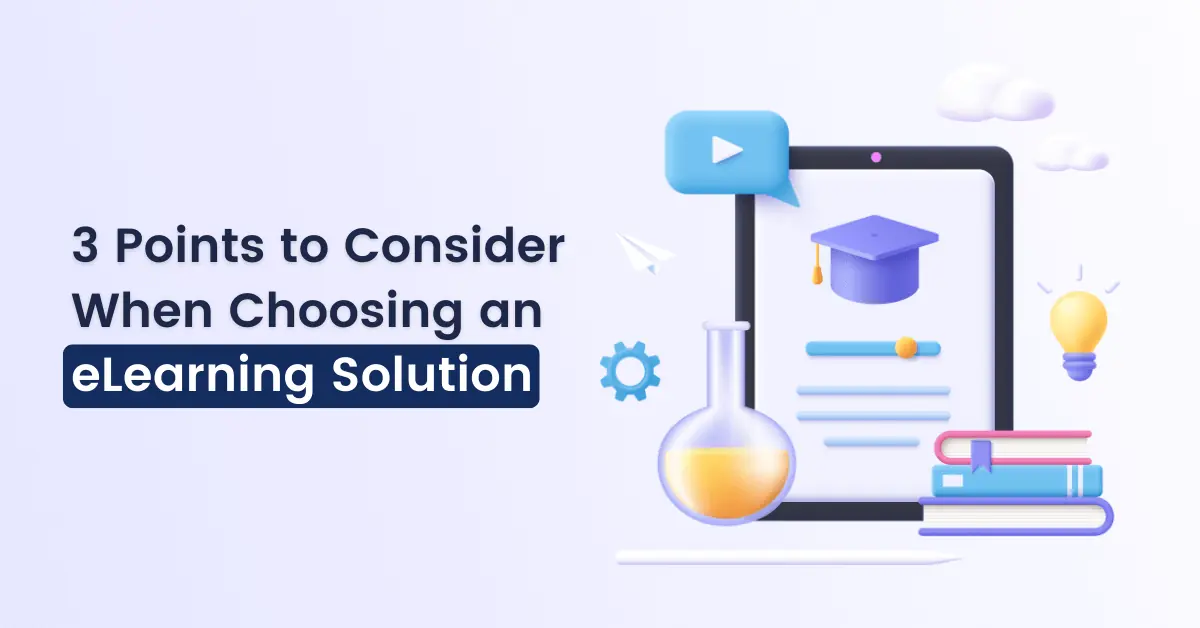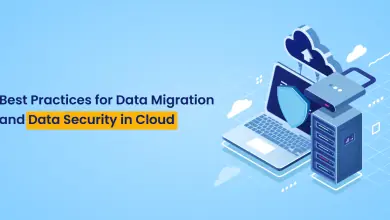3 Points to Consider When Choosing an eLearning Solution

Introduction to the eLearning Industry
The eLearning industry offers a multitude of online eLearning solution that is increasingly popular with private companies or the education sector. A veritable piloting tool for distance knowledge acquisition, virtual class platforms are increasingly being developed and today make it possible to offer high-quality eLearning experiences. Additionally, they offer teaching strategies equivalent to traditional classroom training.
The growing number and popularity of this type of eLearning platform quickly make the choice complex. It is, therefore, essential to know what they can offer you before making a decision. Here are some things to keep in mind in order to consider all the options.

How to Choose an eLearning Solution?
1. Define Your Needs First
Before comparing the eLearning solution, make sure you know the context in which you will use the platform. Your present and future online learning needs will determine the criteria that your platform must meet. Structure your approach around the people who will have to use the eLearning software platform.
Make an inventory of the constraints they encounter during their learning process. This strategy will allow you to list the criteria that are important to you. You must, therefore, orient your reflections with regard to the situations experienced by learners and trainers:
- Are your learners numerous?
- Do you have to coordinate several training sessions simultaneously?
- How many simultaneous trainings will have to be supported by the software?
- Do you want your interaction with the participants to involve the use of audio-visual media?
- What is the technological level of learners and trainers?
- Will you need technical assistance for you and your participants?
- Do you want to do workshops during your training?
Your eLearning software should not become an irritant or a straitjacket in the implementation of your training. Rather, it aims to simplify and serve your educational projects.
In addition, the use of an optimized virtual classroom platform maximizes the online learning experience through features that go beyond that of web or video conferencing software. The latter usually only allows you to retransmit voice and video and screen sharing.
2. Varied Features to Consider
The course of the learners has evolved with technology and the eLearning software must integrate this new reality. In this perspective, we will find on-the-market software with various functionalities which aim to enrich the user experience. It then becomes useful to check whether the options that interest you include advantages such as:
- Interaction tools (chat, freehand function, annotation tools);
- Customizing the learning environment to your colors;
- Tools for managing registrations and invitations to sessions (management portal, a tool for sending invitations);
- Tools for getting started for the user (course calendar or timetables);
- Administration interfaces and performance evaluation reports for managers and trainers.
In addition to these functions which improve the use of the platform for learners and trainers, other more technical criteria must be added to your analysis grid.
3. Criteria That Make the Difference
Do not forget to take into account the IT staff who may have to interact with the platform. It must adapt to the digital ecosystem already in place.
Today there are two main categories of software – those that are installed directly on your local servers and SaaS, or Software as a Service, which is available from the Cloud. The trend is towards the latter option since it is often cheaper and scalable.
It is also important to validate the storage capacity offered by SaaS solutions on the Cloud. This gives you access to all of your recordings and content in one place. Often, the software may be simpler for your recordings, but can quickly become more complex and costly when your storage capacity is limited and subject to additional costs when overflows. This point needs to be considered.
In addition to choosing between these two types of software, you will have to check other technical points such as:
- The need for a personalized web address (URL) for your business;
- Access to a mobile application for all platforms (iOS, Android, Mac, Windows);
- The ease of integration into LMS-type platforms or a learning management system;
- The ability to convert files to web format and upload them to the platform using an integrated content viewer;
- The option of persistent annotation of content during presentations to facilitate learning;
- Access to an API to simplify integration with your existing systems.
Again, these technical criteria should match your needs and your training model. To solidify your decision, check if it is possible to have access to a demonstration and pay particular attention to the availability of assistance during and after the implementation of the platform. The support and after-sales service of your provider will make a big difference in getting started with your new eLearning software.

Conclusion
If you have more questions about the eLearning platform and solutions or how you can manage with entry-level online training software, get in touch with our experts.
With nearly a decade of experience in developing eLearning solution for enterprises, schools, and start-ups, our team can offer you a number of possibilities. Do not hesitate to contact our eLearning specialists, who will be able to help you adequately support your online learning venture, through various simple and interactive solutions.





